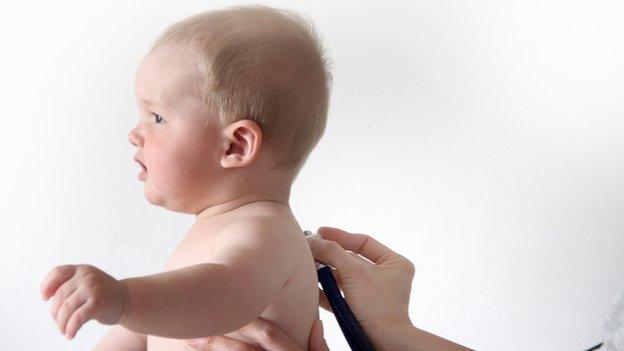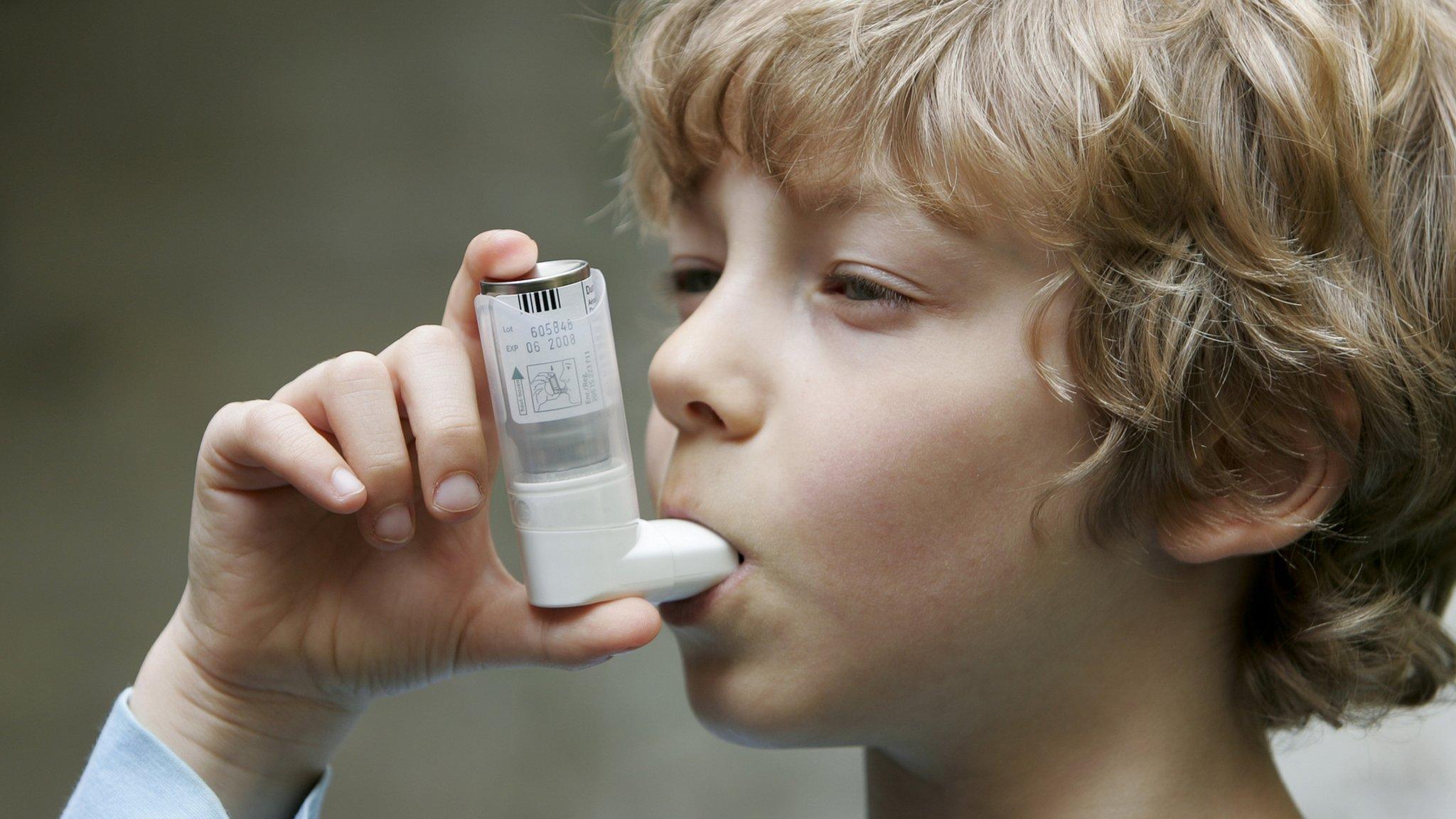Baby lung virus vaccine trials 'offer hope'
- Published

The first human trials of a new vaccine to prevent a leading cause of serious illness in babies have been a success, say researchers.
Respiratory syncytial virus (RSV) affects two-thirds of babies in their first year and is a major cause of hospital admission in the UK.
Early trials of the jab, which uses a harmless virus instead, have shown promising results in adults.
Experts said that although still years off, an RSV vaccine was much needed.
RSV is especially dangerous in those born prematurely or with other respiratory problems.
It also causes severe illness in otherwise healthy infants and is responsible for one in six admissions of children to hospital in winter months.
In the developing world it is second to malaria as a killer of children under one.
A vaccine has long been sought, but success has been hampered by trials in the 1960s when immunised children went on to have extreme reactions when faced with the infection.
It took researchers a long time to work out what went wrong and other vaccine prototypes over the years have failed to produce sufficient immunity.
Genetically modified
The latest vaccine, developed and initially tested by biotechnology firm Reithera, uses genetic engineering to trick the immune system into thinking that it is dealing with RSV.
This "viral vector" technology is the same as that used in the new Ebola vaccines.
It contains a harmless virus that cannot cause illness, and which has been modified to produce some RSV proteins on its surface, the journal Science Translational Medicine, external reports.
Researchers from the Oxford Vaccine Group tested two candidates - one using a chimpanzee cold virus never before used in humans and the other a harmless pox virus - in 42 adult volunteers.
In tests with a nasal spray and injection, the vaccines were found to be safe and produced an immune response.
It is the first stage in many years of trials.
'Encouraging' data
The team is about to embark on tests of another vaccine using the same technology that is being specifically designed for use in children.
Other types of RSV vaccine are in development and US researchers recently announced positive results in older adults.
Study leader Dr Christopher Green, a clinical research fellow at Oxford University said what was particularly exciting about the viral vector technology used in their trials was that similar vaccines, including ones for malaria, had already been successfully used in infants.
"This is encouraging data," he said. "The results of this trial are a positive signal that prevention of RSV is achievable."
Dr Charlie Weller, senior portfolio developer at the Wellcome Trust, said the results were "extremely promising".
"The next steps will be key in order to determine whether the immune responses induced by this vaccine are sufficient to protect against RSV, particularly in the very young and very old, who are at a higher risk of infection."
Dr David Elliman, immunisation expert for the Royal College of Paediatrics and Child Health, said: "This [RSV] has always been considered an important infection and one you would want a vaccine against."
- Published9 September 2012

- Published21 December 2010